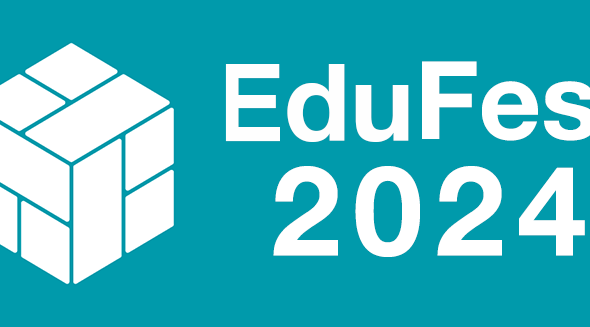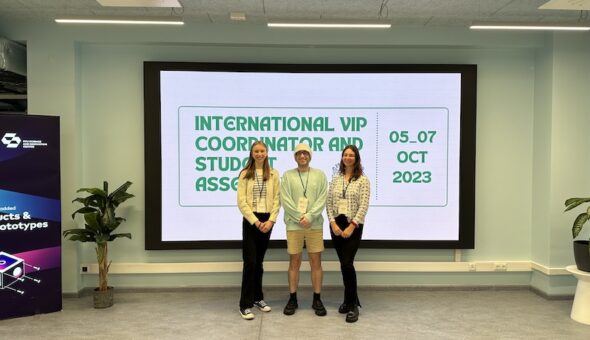Earlier this month, as part of EduFest 2019, we were fortunate to have Professor Stephen Marshall, University of Strathclyde, visit the University to talk about his institution's experience of Vertically Integrated Projects.
Vertically Integrated Projects (VIPs) are an attempt to create sustainable, research engaged communities of staff and students - both undergraduate and postgraduate - who work collaboratively on live projects. Students come from a range disciplines or fields and from across year groups, enabling more experienced students to support other student team members, and allowing everyone involved to work closely with researchers or senior staff. At their very basis, VIPs are long term, large scale and multidisciplinary in nature, bringing continuity to projects, as well as an opportunity to build momentum and benefit from technical and disciplinary breadth. Furthermore, they help to secure long-term commitment from all stakeholders.
"Demand at Strathclyde is high, with more students wanting to take part in VIPs than can be accommodated."
Professor Marshall gave a fascinating overview of how VIPs have grown in popularity from their early development by Professor Ed Coyle at the Georgia Institute of Technology. The University of Strathclyde was the first European higher education institution to join the growing worldwide VIP consortium, which is headed by Professor Coyle. Today, Strathclyde offers 10 projects, with around 200 participating students. Demand at Strathclyde is high, with more students wanting to take part in VIPs than can be accommodated. Competition for places on VIP projects is strong.
The VIP concept enables students to develop their research and professional skills, as well as build confidence and team working capabilities. They also help give students a sense of agency and engagement. Institutional and staff benefits include the creation of a space where departments, professional service teams, alumni, external stakeholders and the public can collaborate. Their focus on research engagement means that VIPs are particularly well suited to STEM and research-intensive universities.
Topics for VIPs are generally identified by academics, or by the teams themselves, who have a keen interest in a particular project. Professor Marshall gave several examples of current VIPs at Strathclyde, including Robotic Vehicles for Education and Research; Text Lab (which uses computer programmes to analyse Shakespearian plays); Water and Sanitation Hygiene; Drug Discovery and Sustainable Energy for Development. Strathclyde's VIPs are mapped to UN Sustainable Development Goals (SDG) and have delivered innovations both in the UK and Africa.
Read more about VIP@Strath at: https://www.strath.ac.uk/viprojects/
Find out about Georgia Tech's VIP Program at: http://www.vip.gatech.edu/
Sue Watts, Centre for Learning & Teaching
Respond



